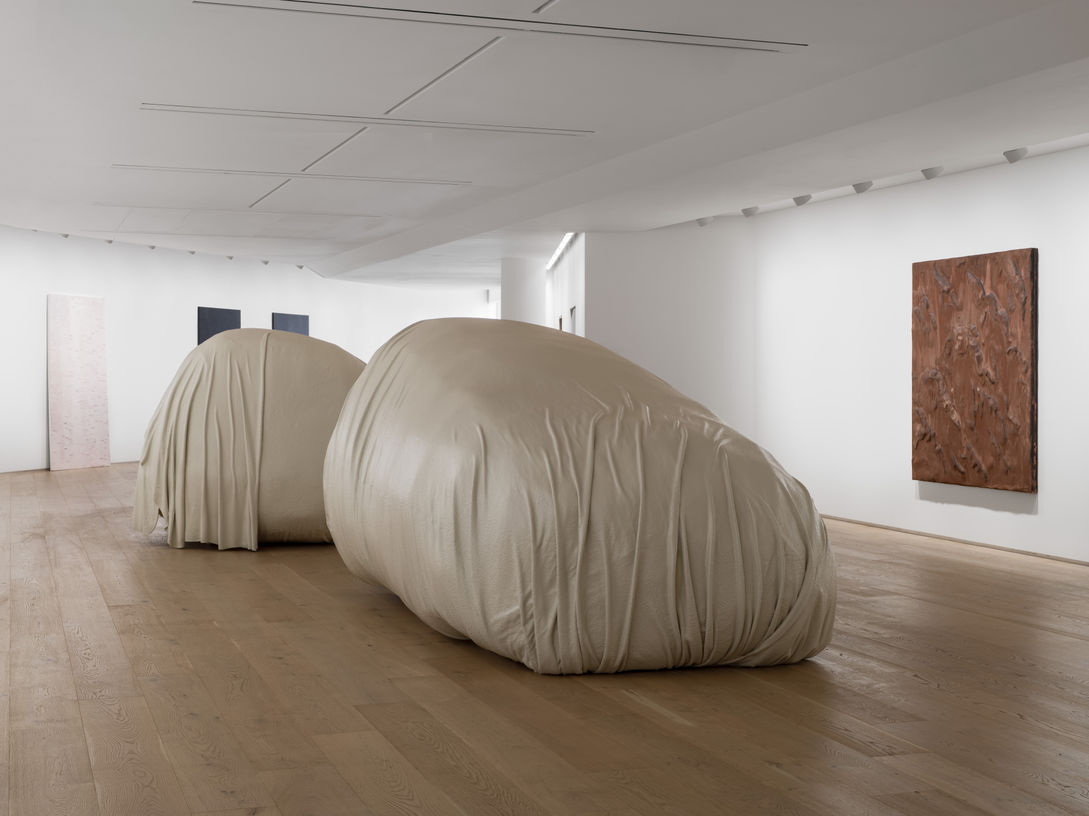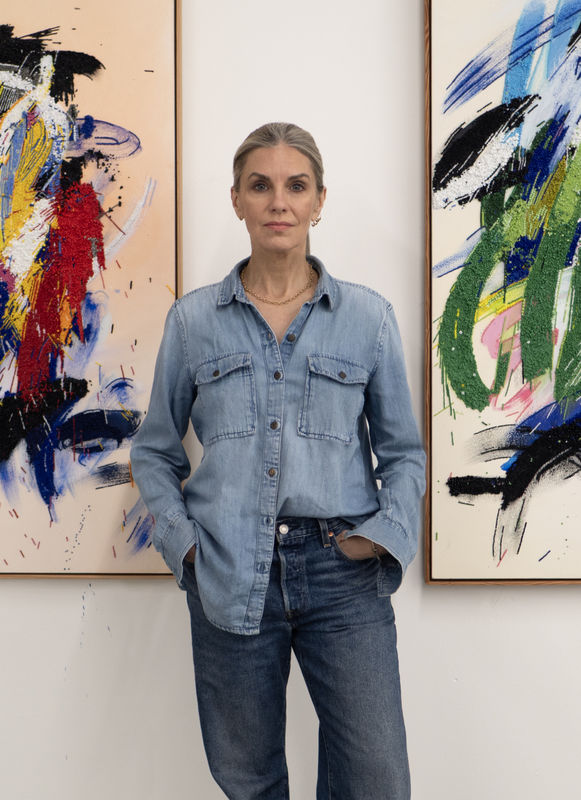

Robert Wilson
Overview
'An artist recreates history, not like a historian, but as a poet. The artist takes the communal ideas and associations that surround the various gods of his or her time and plays with them, inventing another story for these mythic characters.'
Robert Wilson works across a wide variety of artistic disciplines and is an acclaimed director, stage architect, designer, choreographer, curator, visual and light artist. Since the late 1960s, his productions have decisively shaped the contemporary aesthetics of theatre and opera. Through his signature use of light, investigations into the structure of simple movements and the classical rigour of his designs, the force and originality of his vision is apparent across all media.
Wilson's graphic works are fuelled by influences ranging from performance art to Minimalism. While these are often intimately linked to his work for the stage, acting as records of his creative process during rehearsals, they also exist independently as purely poetical objects. Often presented in sequence, his drawings offer subtle variations on the same motif, such as his Der Messias series that relates to Mozart's adaptation of an oratorio by Handel. Rendered in subtle tones of black and white, these works range from pure abstraction to specific sketches of what Wilson envisioned for an act, scene or interlude. Rather than a realistic rendering of the stage design, they represent energy streams, echoing his use of light to define space on stage.
Robert Wilson works across a wide variety of artistic disciplines and is an acclaimed director, stage architect, designer, choreographer, curator, visual and light artist. Since the late 1960s, his productions have decisively shaped the contemporary aesthetics of theatre and opera. Through his signature use of light, investigations into the structure of simple movements and the classical rigour of his designs, the force and originality of his vision is apparent across all media.
Wilson's graphic works are fuelled by influences ranging from performance art to Minimalism. While these are often intimately linked to his work for the stage, acting as records of his creative process during rehearsals, they also exist independently as purely poetical objects. Often presented in sequence, his drawings offer subtle variations on the same motif, such as his Der Messias series that relates to Mozart's adaptation of an oratorio by Handel. Rendered in subtle tones of black and white, these works range from pure abstraction to specific sketches of what Wilson envisioned for an act, scene or interlude. Rather than a realistic rendering of the stage design, they represent energy streams, echoing his use of light to define space on stage.
Born in 1941 in Waco, Texas, Wilson studied at the University of Texas and the Pratt Institute in Brooklyn. He founded the New York-based performance collective 'The Byrd Hoffman School of Byrds' in the mid-1960s and developed his first signature works, including Deafman Glance (1970) and A Letter for Queen Victoria (1974–75). With Philip Glass, he wrote the seminal opera Einstein on the Beach (1976). In 1998, the renowned production of Bluebeard's Castle & Expectation, with Jessye Norman in the role of the Woman, premiered at the Salzburg Festival. Wilson's artistic collaborators include many writers and musicians such as Heiner Müller, Tom Waits, Susan Sontag, Laurie Anderson, William Burroughs, Lou Reed and Anna Calvi. He has also left his imprint on masterworks such as Beckett's Krapp's Last Tape, Brecht/Weill's Threepenny Opera, Debussy's Pelléas et Melisande, Goethe's Faust, Homer's Odyssey, Jean de la Fontaine's Fables, Puccini's Madama Butterfly, Verdi's La Traviata and Sophocles' Oedipus.
Wilson's drawings, paintings and sculptures have been presented in hundreds of solo and group exhibitions and are in private collections and museums internationally. He has been honoured with numerous awards for excellence, including a Pulitzer Prize nomination (1986), two Premio Ubu awards (1994 and 1996), the Golden Lion at the 45th Venice Biennale (1993), and an Olivier Award (2013). He was elected to the American Academy of Arts and Letters, and the German Academy of the Arts, as well as holding eight honourary doctorates. France pronounced him Chevalier des arts et des lettres (2003) and Officier de la Légion d'Honneur (2014), while Germany awarded him the Officer's Cross of the Order of Merit (2014).
Wilson is the founder and artistic director of The Watermill Center, a laboratory for the arts in Water Mill, New York.
Videos









































































































































































































